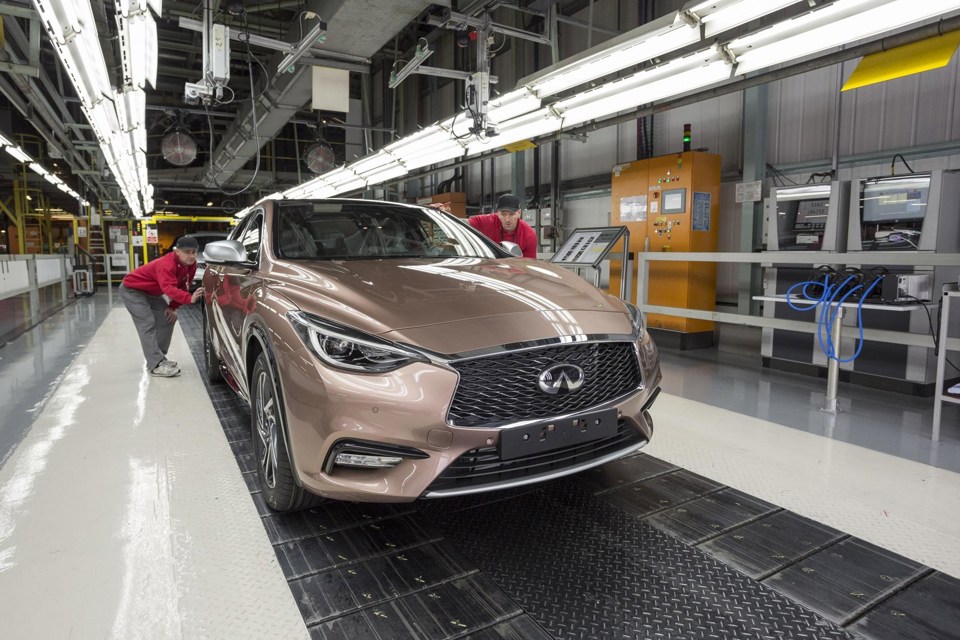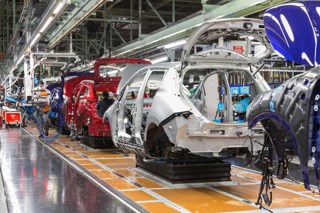The Society of Motor Manufacturers and Traders has said that model changes and preparation for WLTP and RDE fuel economy and emissions tests were to blame for an 11% decline in UK car production during July.
The SMMT’s monthly update on the productivity of the UK’s manufacturing plants revealed that 121,051 car left production lines last month as exports declined by 4.2% and 35% fewer cars were built for the UK market.
Year-on-year figures were skewed by a particularly strong July in 2017 when the launch of several new models boosted output by almost 10,000 units and resulted in a substantial 17.7% rise in British demand for the month, however.
 SMMT chief executive, Mike Hawes, said: “While the industry is undoubtedly feeling the effects of recent uncertainty in the domestic market, drawing long term conclusions from monthly snapshots requires a health warning.
SMMT chief executive, Mike Hawes, said: “While the industry is undoubtedly feeling the effects of recent uncertainty in the domestic market, drawing long term conclusions from monthly snapshots requires a health warning.
“The bigger picture is complex and month by month fluctuations are inevitable as manufacturers manage product cycles, operational changes and the delicate balance of supply and demand from market to market.
“To ensure future growth, we need political and economic clarity at home, and the continuation of beneficial trading arrangements with the EU and other key markets.”
 Year-to-date car production volumes remain broadly on track to meet 2018 expectations, according to the SMMT, with 955,453 cars built in the first seven months.
Year-to-date car production volumes remain broadly on track to meet 2018 expectations, according to the SMMT, with 955,453 cars built in the first seven months.
A statement from the industry body said: “While production for the UK is currently down 16% compared with the same period last year, exports remain strong, dipping by a more moderate 1.2% and accounting for 81.3% of all output.”
Justin Benson, head of Automotive at KPMG in the UK, said that some levelling out after 2017’s strong July results was not unexpected, particularly as the industry enters a hugely disruptive period with electric, connected and autonomous vehicles entering the market over the next few years.
He added: “However, the export numbers are a little worrying. 80% of cars produced in the UK are for export and given the relatively buoyant consumer markets in the US, China and the EU, the concern would be that tariffs, whether Brexit or others, will make consumers around the world start to think twice about buying new cars.
“That being said, market share is now all to play for, which bodes well for consumers.”



















Login to comment
Comments
No comments have been made yet.